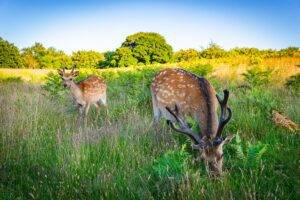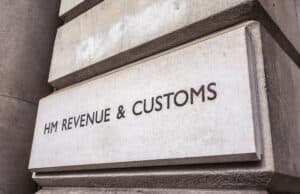Accounting for Nature

<?xml encoding=”utf-8″ ?????????>
The World Wide Fund for Nature estimates there has been a 69% average loss in the abundance of mammal, bird, reptile, fish and amphibian species since 1970, and more than a quarter of all species are under current threat of extinction.
While most business leaders recognise this issue of biodiversity loss and the need to protect nature, few are doing more than the legal minimum to ensure their companies don’t exacerbate the problem, let alone make things better.
Madlen Sobkowiak, Assistant Professor in Accounting, Birmingham Business School, University of Birmingham, explains that a key part of the problem is a lack of understanding about how fundamental ecological factors are to the profitability of a company. Nature just doesn’t make it onto most accountants’ spreadsheets. But how profitable would an agricultural business be without healthy soil or a seafood manufacturer without a healthy ocean? They are utterly dependent on them.
This is why the unique accounting of Brazilian organic sugar company, Native, seems at once both delightfully novel and blindingly obvious. As well as the standard metrics, their accounting processes include measurements and key performance indicators (KPIs) for their soil, looking at its nutrients, fungi and biodiversity.
It’s central to what Native’s CEO Leontino Balbo Jr describes as an ‘agroecological’ approach to farming that has seen soil fertility improve, water sources regenerate, more carbon absorbed than expelled and biodiversity ‘explode’ in the last 20 years. All these improvements have helped make the plants more resistant to pests, disease and drought, as well as turned their plantations into an important breeding ground for large cats and 45 other endangered species.
Ultimately, the impact of Native’s comprehensive accounting for environmental factors – allowing the company to anticipate problems with the soil and mitigate them before they lead to declining yields and wildlife – is greater natural resilience. And the more resilient nature is, the more viable and resilient the business is too.
Despite this obvious interconnection between nature and business, until very recently most accountancy courses taught at universities and colleges treated environmental as well as social impacts as ‘externalities’ – peripheral to the main task of monitoring financial transactions, as the term suggests. But in reality, it’s money and profits that are peripheral – or at least entirely contingent – on the material welfare of people and the planet.
The UN introduced a System of Environmental-Economic Accounting (SEEA) in the 1990s to encourage countries to account for social and environmental ‘externalities’ in the valuing of their economy, which is normally just predicated on a valuation of the country’s finished goods and services, known as GDP. It pioneered the idea of ‘natural capital’ and ascribing a monetary ‘asset’ value to nature as a way of integrating it into the balance sheet of the economy, recognizing its value and managing it more sustainably.
But while its intentions may have been laudable, critics say it has led to a narrowly defined valuing of nature as a commodity that’s owned and traded, not enjoyed in its own right. Trees, for example, are measured by their commercial timber and carbon-sequestering value, while their importance to biodiversity or recreation is also linked to market valuations that bear little relation to how people and other wildlife actually enjoy or depend on them.
This financialization of nature, so that all environmental risks can be ‘priced in’, proffers the tempting notion that if, for example, whales are ascribed a monetary value for their contributions to fisheries, tourism and carbon sequestering (the International Monetary Fund [IMF] has come up with an estimate of US$2 million for each whale), then banks and businesses will be more inclined to preserve them. But more recent sustainability initiatives have shown taking a more systemic and values-led approach can be more effective.
In 2016, the Stockholm Resilience Centre helped set up the Seafood Business for Ocean Stewardship (SeaBOS) initiative, whose mission is ‘to lead a global transformation towards sustainable seafood production and a healthy ocean’. The idea is that a minority of powerful actors can influence a majority of smaller actors and foment change on a global and systemic scale. So SeaBOS brings together leading scientists and the biggest seafood companies, including fisheries, feed producers and major aquaculture businesses, from across the globe to work jointly and harness their individual and collective influence to improve the socio-ecological resilience of the world’s oceans.
So far, nine of the world’s largest seafood companies participating in the initiative have committed to time-bound goals for a healthy ocean and agreed to develop and implement sustainable practices within their global supply chains. This includes recycling and reducing plastic, reducing the impact on endangered species and climate change, and adopting new tracing technology to combat illegal fishing and forced labour. These nine businesses alone represent over 10% of the world’s seafood production and over 600 subsidiary companies, so it’s clear to see how collaborating with these organisations can have a significant impact on the wider seafood sector.
Stewardship is at the heart of socio-ecological resilience initiatives like SeaBOS. Everyone on the planet has a responsibility to protect the health of society and the planet for centuries to come, but this is a particular challenge for businesses where a culture of short-termism and profiteering is common. SeaBOS encourages companies who depend on the world’s oceans to generate their income to look beyond short-term profit and instead focus on the intrinsic value of the oceans and the role these businesses can take in protecting the future health of the seas and ultimately their own companies.
For any business’ sustainability strategy to be effective, it needs to include collaboration with other businesses, organisations and government to tackle the big systemic problems – like biodiversity loss – which will ultimately help build the overall resilience of society and the environment upon which the business depends. But most fall well short of this ambition.
And for any business wanting to mitigate biodiversity loss, it must start by accounting for nature in its operations. Accountants have a leading role in making all sustainability issues visible, determining how they’re measured and framing the way a company responds. If they decide nature is no longer an ‘externality’ to the business, but an intrinsic part of its future health and resilience, then perhaps companies can take more of an active role in the fight to prevent biodiversity loss.




